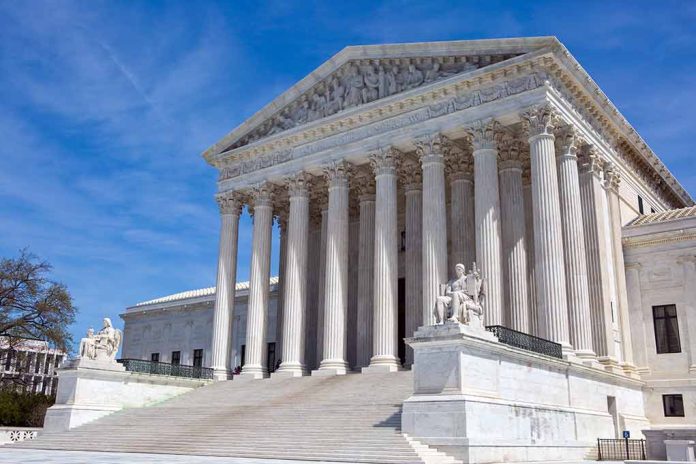
The U.S. Supreme Court unanimously rules against Holocaust survivors suing Hungary in American courts, citing sovereign immunity.
Key Takeaways
- The Supreme Court’s 9-0 decision blocks a lawsuit against Hungary for Holocaust-era asset seizures.
- Justice Sonia Sotomayor authored the opinion, emphasizing the lack of direct commercial connection to the U.S.
- The ruling upholds sovereign immunity principles under the Foreign Sovereign Immunities Act.
- While closing this legal avenue, the Court suggests survivors may seek redress in other forums.
- The decision impacts similar cases involving historical foreign injustices without U.S. commercial ties.
Supreme Court’s Unanimous Decision
The U.S. Supreme Court has unanimously decided that a group of Holocaust survivors and their families cannot sue Hungary in American courts over asset seizures during World War II. The case, Republic of Hungary v. Simon, centered on whether the plaintiffs could prove a sufficient connection between the seized property and commercial activity in the United States.
Justice Sonia Sotomayor, writing for the Court, emphasized that the survivors’ claims did not meet the legal requirements necessary to overcome Hungary’s sovereign immunity stating, “the issue presented in this case is whether alleging commingling of funds alone can satisfy the commercial nexus requirement of the expropriation exception of the FSIA. The Court holds that it cannot.”. The decision hinged on the interpretation of the Foreign Sovereign Immunities Act (FSIA), which generally protects foreign governments from being sued in U.S. courts unless specific exceptions apply.
The Supreme Court unanimously sided with Hungary on Friday by rejecting a group of Holocaust survivors’ legal theory that sought to haul the country into American courts to pay compensation. https://t.co/sFYcrZMS4l
— WOWK 13 News (@WOWK13News) February 22, 2025
Background of the Case
The lawsuit, originally filed in 2010, sought compensation for property confiscated by Hungary and its state-owned railway during the Holocaust. The plaintiffs argued that Hungary had used proceeds from the seized assets for commercial activities in the United States, which they claimed should allow their case to proceed under the FSIA’s expropriation exception.
Lower courts had grappled with the case, with a federal district court initially dismissing the lawsuit, citing a peace treaty between the U.S. and Hungary. However, the U.S. Court of Appeals for the D.C. Circuit reversed this decision, allowing the case to proceed. The Supreme Court’s ruling now overturns the appeals court’s decision.
Implications of the Ruling
The Supreme Court’s decision emphasizes that the mere commingling of funds seized during the Holocaust with Hungary’s general funds, which may have been used for commercial activities in the U.S., does not satisfy the FSIA’s expropriation exception. This ruling sets a precedent that will likely affect similar cases involving historical foreign injustices without direct commercial ties to the United States.
While the decision is a setback for the Holocaust survivors and their families seeking justice through U.S. courts, the Supreme Court noted that this ruling does not preclude the possibility of seeking legal redress in other forums. Justice Sotomayor emphasized that the decision only addresses the specific requirements for bringing suit against foreign sovereigns in U.S. courts under the FSIA.
Future Prospects for Holocaust-Related Claims
The Supreme Court’s ruling leaves open the question of how Holocaust survivors and their descendants might pursue claims for historical injustices in the future. While U.S. courts may no longer be a viable option for cases lacking direct commercial ties, other international forums or diplomatic channels may still be available for seeking compensation or recognition.
This case underscores the complex interplay between sovereign immunity, international law, and the pursuit of justice for historical atrocities. As the world continues to grapple with the long-lasting effects of the Holocaust, finding appropriate avenues for addressing these claims remains a challenge for survivors, their families, and the international community at large.
Sources:
Supreme Court Blocks Lawsuit Against Hungary for Seizing Assets During the Holocaust
Supreme Court unanimously sides with Hungary in Holocaust survivors’ lawsuit
Supreme Court deals a severe blow to Holocaust survivors’ lawsuit against Hungary



